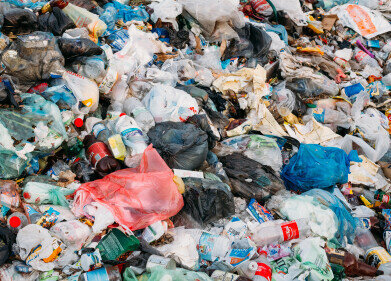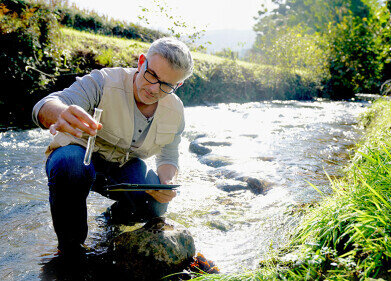Environmental Laboratory
Creating Confidence in Long Term Relationships – The Future of the Green Deal
May 03 2012
Initiatives such as the Green Deal require individuals to invest long term in projects which are as much to the public good as to themselves. The driver behind the Green Deal is that carbon reduction can be achieved through energy efficiency. Success will depend on homeowners being convinced to seek improved energy efficiency on a property by property basis.
These were some of the key findings to emerge from a think tank debate sponsored by the United Kingdom Accreditation Service, and the Committee on Climate Change, at which an audience drawn from key organisations involved with the Green Deal considered the key issue of confidence-creation in such schemes.
The speakers broke down the success of the project into three key areas: That the logic of the scheme is sound, that the mechanism of the scheme is sound and that the implementation of the scheme is sound.
Speaker David Kennedy, Chief Executive of the Committee on Climate Change reviewed the logic of the scheme. He focused on context, putting the Greal Deal into the bigger picture where it works in conjunction with complementary industry initiatives. He felt the good news is that government funding for supporting renewable power, renewable heat and the electric car market has been protected, even in the current climate. However, it is the Green Deal that is attracting the attention as the significant platform for delivering carbon reduction.
A key concern is that the Green Deal is complicated. A simple’ silver bullet’ solution is theoretically preferable. But it was agreed that in reality a multi-dimensional scheme is the only real answer when properties are so varied. David Purdy, Deputy Director Green Deal at the Department for Energy and Climate Change asked how a scheme like The Green Deal would be delivered so that it simplifies the options for consumers. His answer was that it is largely dependent on breaking it into simpler steps.
Purdy suggested conditionality was key to ensure clear stepping stones between the actions required and the rewards achieved. Prioritisation should be put on the lower cost measures that had higher benefits. Loft and cavity wall insulation are the main priority, and while solid wall insulation is more challenging in terms of cost and delivery it needs to be addressed. We then need people to consider renewable heat generation on a more widespread basis.
The final consideration was successful implementation. Key to this is creating confidence amongst Green Deal participants that the scheme will work. For the property or homeowners, this will be demonstrated largely by costs and bills said Andrew Pendleton, who has recently produced a report for the IPPR on how Government should encourage households to use renewable heat. However, the other deliverables that could be highlighted are that homes will be warmer – and jobs as well as heat will be generated.
However a key blocker is the complexity. There is too much of a gap between action now and pay back later. There are too many stages and too many issues at each stage. People don’t want to clear their lofts, haven’t got ladders, don’t want strange people in their homes. They don’t know how to choose suppliers, how to judge whether the level of service they get is right, or good value or finally if they will really get any benefits.
Although some issues are successfully addressed by accreditation, others are more stubborn. Using accredited certification for assessors and installers gives the public assurance that a system of identifying trustworthy suppliers has been set up on their behalf. David Purdy was asked what was needed to drive take-up of Green Deal and other policies. He said we need to make change more aspirational. What are future homes going to look like and feel like? Andrew Pendleton highlighted the key issues which should be brought front of mind. How can people be encouraged to change the way they live? He felt the future of the Green Deal has to be translated into personal issues. It is about a future where home owners are warmer, more comfortable but not out of pocket.
Digital Edition
IET 34.2 March 2024
April 2024
Gas Detection - Biogas batch fermentation system for laboratory use with automatic gas analysis in real time Water/Wastewater - Upcycling sensors for sustainable nature management - Prist...
View all digital editions
Events
Apr 30 2024 Melbourne, Australia
Apr 30 2024 Birmingham, UK
May 03 2024 Seoul, South Korea
May 05 2024 Seville, Spain
May 06 2024 Minneapolis, MN, USA


















